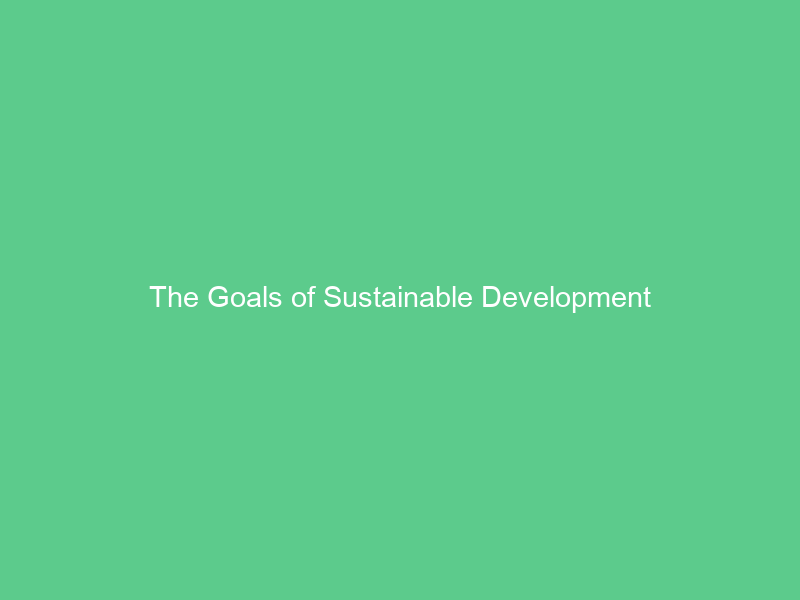Sustainable development (SD) is the goal of global society today, including creating healthy and liveable cities, high quality education, gender equality, affordable renewable energy sources and responsible production and consumption practices.
SD refers to the ability of societies to meet their needs without straining limited global resources, by achieving economic, environmental, and social sustainability.
Environmental Protection
As its name implies, sustainability involves safeguarding our planet’s natural resources for generations to come. This can be accomplished through numerous measures, including conserving and using renewable energy sources; encouraging more environmentally-friendly agriculture practices; adopting circular economy strategies and passing stringent environmental legislation. Such efforts may also benefit from progressive policies, innovative technology advancement and collaboration between governments and businesses.
Many people make a living by drawing upon Earth’s limited resources for daily survival, yet global populations continue to expand while Earth’s resource capacity decreases.
To address this problem, some advocates support population control and sustainable management of resources, while others suggest intergenerational equity as part of sustainability; that would require us to protect our planet’s ability to meet future generations’ needs as well as our own (Citation2019). It would require setting aside an ecological reserve for them while simultaneously decreasing how rapidly we consume natural resources and pollute the environment.
Economic Growth
The Sustainable Development Goals adopted by all countries in 2015 provide an ambitious global plan to end poverty and hunger, reduce inequality, and protect our planet. Their guiding principle is “leave no one behind.”
Realizing these 17 goals relies on sustainable economic growth, improving living standards, increasing education and health benefits, providing clean water and energy access, creating decent jobs, and decreasing inequalities.
Economic growth is essential to environmental protection, as it allows societies to devote more resources towards reducing pollution and recycling, investing in renewable energy sources that help avoid resource scarcity and the Kuznets curve that suggests economic expansion initially worsens environmental outcomes but later can improve them with improved technology and increased investment. Global citizens must recognize that economic development and environmental protection go hand-in-hand; progress on one goal cannot occur without progress towards both goals being made simultaneously.
Social Development
Social development depends on combining human and natural resources for progress, including land, water, minerals and oil; information technology and energy; infrastructure projects and energy consumption. Social and mental resources should also be utilized.
Society moves through stages of survival, growth and development with increasing awareness and better organization driving these shifts in society’s behaviors and perspectives. At each step, there are significant qualitative shifts in how societies take advantage of opportunities or overcome hurdles.
The Social Development Model (SDM) draws upon evidence from multiple fields such as sociology, psychology and criminology to form an explanation for both positive and problem behaviors by providing general processes that are fully mediated by long-term predictors (Catalano & Hawkins 1996). Furthermore, the SDM provides specific submodels corresponding to developmental phases from infancy through middle childhood and adolescence (generally years/grades 1-6 or 9-12) where socializing units play a vital role and displays what forms of prosocial or problem behavior most commonly during that phase (Catalano & Hawkins 1996).
Creating Shared Value
Sustainable development involves growing economically while simultaneously protecting the environment. This means providing people with decent jobs, quality health care and education; conserving biodiversity while using natural resources responsibly in order to preserve and renew them in due course.
Sustainable communities and public policies should prioritize tolerance, social cohesion and justice for all residents in all countries and cities worldwide. Furthermore, awareness should be raised among every resident to encourage responsible environmental, economic and social behavior and act as responsible stewards of their environment.
Shared Value is an approach that seeks to link company success with social progress. Unlike philanthropy or corporate social responsibility (CSR), its aim is not just compensating for damage done but rather creating profitable businesses by solving society’s issues instead of simply dispensing profits earned at society’s expense.

